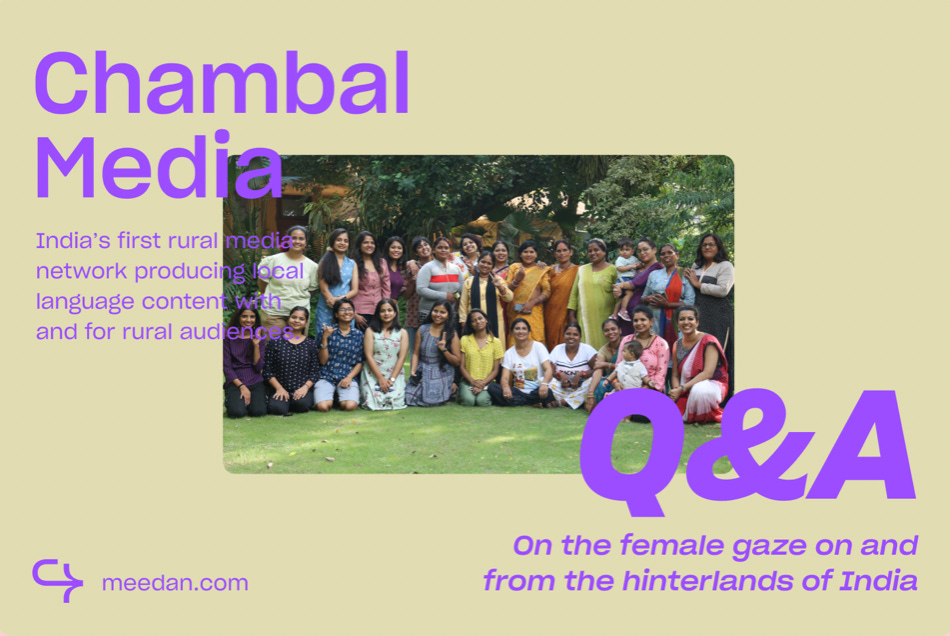Social Media platforms fail to moderate content pre and during elections
Hey Checklisters!
We hope you’re staying safe and healthy wherever you are.
In this week’s edition, we keep the focus on social media platforms’ poor performance while moderating content during elections, as Kenya´s results wrap up and Brazil´s getting ready for tense months leading to the voting in October. And in Morocco during a quiet royal celebration, Reporters Without Borders (RSF) points out that the situation of the national media is worse than at any time since King Mohammed VI’s became king in 1999.
For a bit of news from Meedan, we would love to introduce you to one of our beloved partners Chambal Media, through this Q&A you will get to know more about their work in rural India and their unique content strategy using feminist storytelling in local languages.
If there are updates you would like us to share from your country or region, please reach out to us at checklist@meedan.com.
The Checklist is currently read by over 1000 subscribers. Support us by sharing this issue with friends and colleagues.
The latest top stories
Brazillian Elections: Facebook and Instagram allow candidates to finance ads with fake news attacking the electoral system
A survey led by NetLab and Globo identified that at least 21 ads with disinformation about the electoral process were authorized last month by Meta, the company that controls the platforms. The dissemination came from profiles of supporters of President Jair Bolsonaro (PL), who has also made repeated attacks on the electoral system. Most of the ads were paid for by candidates for federal or state deputy affiliated with parties close to the Planalto, such as PL, Republicans, PP, PSC and Patriota.
The platforms do not want to invest in transparency or publicly assume any type of content moderation. They are able to moderate content and do so routinely, but the criteria are kept secret. Respect for local laws and transparency in content moderation is fundamental for the protection of our democracy — Coordinator of NetLab, Rose Marie Santini.
Behind Morocco’s Throne Day, journalists are being persecuted (RSF)
As Morocco quietly marks the 23rd anniversary on 30 July of King Mohammed VI’s accession to the throne, Reporters Without Borders (RSF) points out that the situation of Morocco’s media is worse than at any time since he became king in 1999.
“The return to the practices of the darkest years in Morocco is disturbing and unacceptable [...] It contradicts the image of respectability that the government likes to present to the outside world and, above all, it runs counter to the legitimate aspirations of Moroccans to exercise their freedoms, including press freedom, in an effective way." - Khaled Drareni, RSF’s representative in North Africa.
Kenya Elections: Have Social Media Companies Learnt from Past Mistakes (Byline Times)
Social media has become the battleground for public opinion in Kenya's 2022 general election, and a lot of work has gone into combating the ethnic tensions that have emerged in previous elections. This election highlighted the continued failure of the platforms to enforce their own guidelines and content moderation policies, and given the emergence of misinformation campaigns focusing on ethnic divisions in the country, fact-checking organisations with local expertise have emerged as the voice of reason, enforcing accountability and defusing politically divisive discourse.
This election has, so far, been an improvement on years gone by thanks to the growing power of civic fact-checking organizations that establish the accountability and media literacy necessary for democracy to function. While these initiatives are vital, it’s inexcusable that social media giants continue to fail to enforce their own guidelines and under resource moderation teams in parts of the world where they know the PR fallout will be less damaging to their brand — Harvey Pitt is Head of Digital Responsibility at ADDVERT
What’s new at Meedan
Chambal Media: the feminist storytellers of rural India
Check Global´s partner Chambal Media is India’s first rural media network producing local language content with and for rural audiences. With a strong network of rural and urban journalists, Chambal reporters tell stories that are often overlooked by mainstream media. What distinguishes them from the rest is their storytelling through a feminist gaze and by representatives of marginalized communities. Chambal’s storytellers and filmmakers of rural India narrate stories that are often personal and from their communities.



